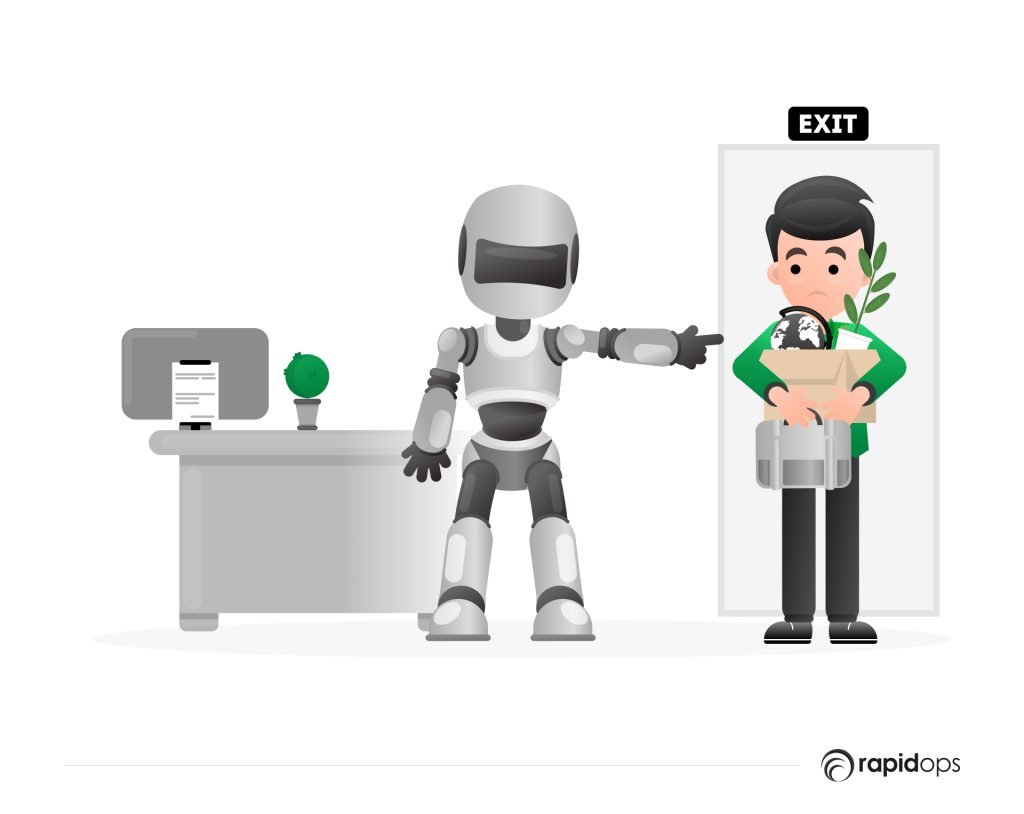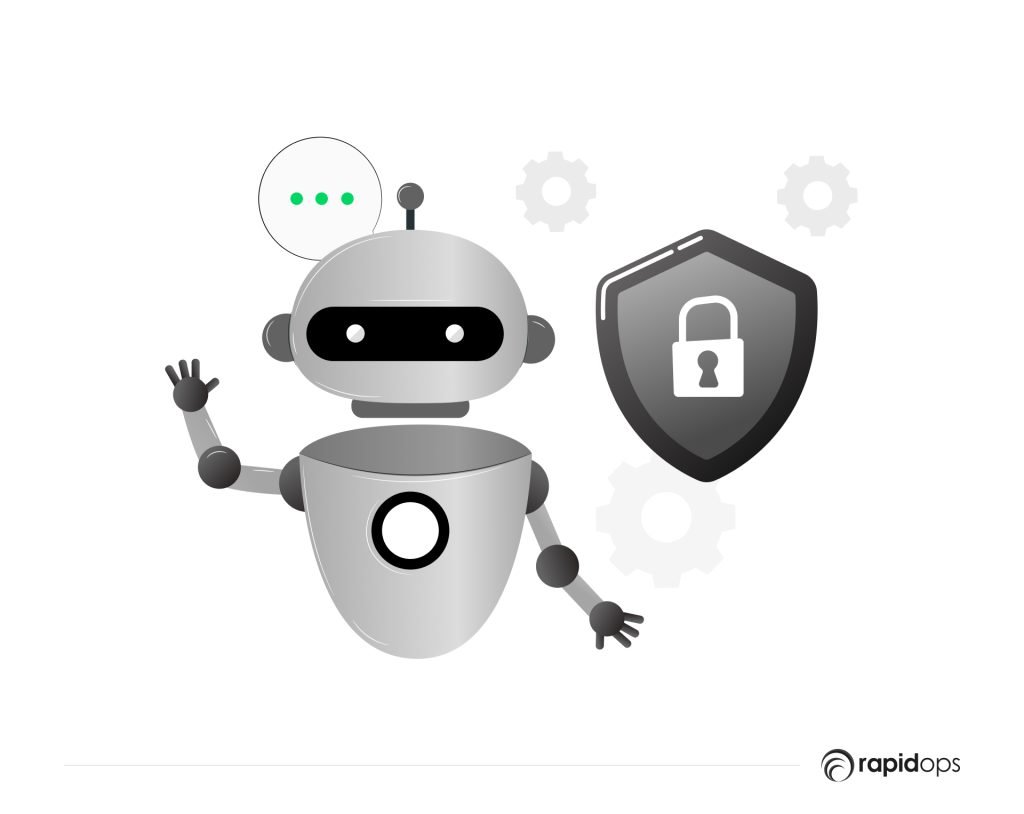There are many myths and misconceptions about Artificial Intelligence. For example, some people think that AI is capable of conscious thought and intention, while others believe it is a threat to humanity.
AI is a collection of algorithms and software designed to mimic certain aspects of human intelligence, such as problem-solving and decision-making.
Rather than fearing the AI-enabled world, we should embrace the tech-oriented, secure, and transformed world where technology is for humans and not vice-versa.
Sure, there are numerous things that people assumed, misunderstood, and jumped to conclusions because of a lack of knowledge, so here’s the top-10 list of those myths that we’d try to justify and debunk.
Top 10 AI Myths
Let's look at the top 10 myths that are somewhat like one another but have been feared the most since the inception of AI:
- AI will replace humans in the workforce
- AI is always intelligent and infallible
- AI is a threat to national security
- AI is a new technology
- AI is only used in tech and robotics industries
- Only large companies and organizations can implement AI
- AI is only for complex tasks and decisions
- AI lacks empathy and emotional intelligence
- AI lacks creativity and originality
- AI will bring about the end of the world
Some of these pointers largely depend on assumptions and lack of knowledge. That's why we have curated the five most common AI myth-busters.
Want to keep up with the latest
AI advancements? Check out our up-to-date AI Tracker.
Explore NowMyth 1: AI is taking away jobs

False. AI creates jobs as companies invest in new roles to manage, maintain, and develop AI technology. It is also used to create new jobs, such as data scientists and machine learning engineers.
It is an incredible tool with many potential uses but cannot replace human labour in sectors where people work as caregivers, psychologists, lawyers, etc.
AI can automate specific tasks, such as data entry or customer service, but it cannot think independently or make decisions that require human judgment.
Myth 2: AI is only used in the tech industry
“The global AI market will reach a size of half a trillion US dollars in 2023.” - Tidio
So, it’s impossible that only the tech industry is contributing so much to make AI a trillion dollars industry.
AI is used in many different industries, including healthcare, finance, and even the arts.
For example, AI is being used to help diagnose medical conditions, create personalized financial investment plans, and generate art and music.
A study done by Forbes says, nearly 70% of financial firms use AI and ML to predict cash flow and adjust credit scores.
AI is also being used in healthcare to help doctors diagnose diseases, predict patient outcomes, and personalize treatment plans.
For example, AI-powered systems can analyse medical images to detect abnormalities or analyse patient data to predict the likelihood of a heart attack or other medical conditions.
As AI technology advances and becomes more widely available, we expect to see more industries adopting AI.
Not only in the future but AI at present is also being used in many industries, from healthcare to financial services to retail. It can help streamline processes, improve customer service, and provide insights to help businesses make better decisions.
Myth 3: AI is a threat to national security

While AI can be used for malicious purposes, it can also enhance security. AI can help detect and prevent cyber-attacks, analyze data for potential threats, and provide insights for better decision-making.
This is a myth because it has the potential to enhance national security by assisting in tasks such as data analysis, surveillance, and threat detection.
While it is essential to consider AI's potential risks and ethical implications, it is not inherently a threat to national security.
Myth 4: AI lacks empathy and emotional intelligence
AI does not possess the ability to experience emotions as humans do. However, this does not mean that AI lacks empathy or emotional intelligence.
While AI systems are incapable of feeling emotions, they can be designed to recognize and respond to emotional cues similarly to how a human might respond.
For example, an AI system designed to assist customer service might be trained to recognize the tone of a customer's voice and respond suitably.
Many people use AI-powered personal assistants like Amazon's Alexa or Apple's Siri to help them with everyday tasks such as setting alarms, playing music, and answering questions.
These assistants use natural language processing and other AI techniques to understand and respond to user requests in a human-like way.
This ability to recognize and respond to emotions is a form of emotional intelligence, even if the AI system does not experience emotions.
Myth 5: AI will bring the end of the world
There is a common fear that AI will become so advanced that it will threaten humanity and potentially bring the world to an end.
However, this fear is largely unfounded. While it is true that AI has the potential to be a powerful technology, it is not capable of independent thought or decision-making.
AI systems are only as capable as the algorithms and data they are trained on, and they can only perform tasks that they have been specifically designed and programmed to do. Furthermore, the development of AI is heavily regulated and governed by ethical principles to ensure that it is used responsibly and safely.
So, it is unlikely that AI will be responsible solely for bringing an end to the world.
Wrapping up
We can ensure that technology works for us rather than against us by comprehending the AI myths and appreciating its strength and limitations. To fully realize the potential of AI, it is crucial to strike the correct balance between automation and human oversight.
By following this mindset, we can ensure that technology develops responsibly and benefits society. These AI myths need to be debunked to realize the full potential of a hand-built solution that can be utilized for a better future for humankind only.
One-third of organizations are applying Artificial Intelligence across their business units.
If you trusted myths, here's your cue to believe the facts. Then, devise a plan; decide which AI tools suit your organisation best for the betterment of your business!

Niyati Madhvani
A flamboyant, hazel-eyed lady, Niyati loves learning new dynamics around marketing and sales. She specializes in building relationships with people through her conversational and writing skills. When she is not thinking about the next content campaign, you'll find her traveling and dwelling in books of any genre!
What’s Inside

Let’s build the next big thing!
Share your ideas and vision with us to explore your digital opportunities
Similar Stories
- AI
- 4 Mins
- September 2022

- AI
- 7 Mins
- April 2023


Receive articles like this in your mailbox
Sign up to get weekly insights & inspiration in your inbox.

